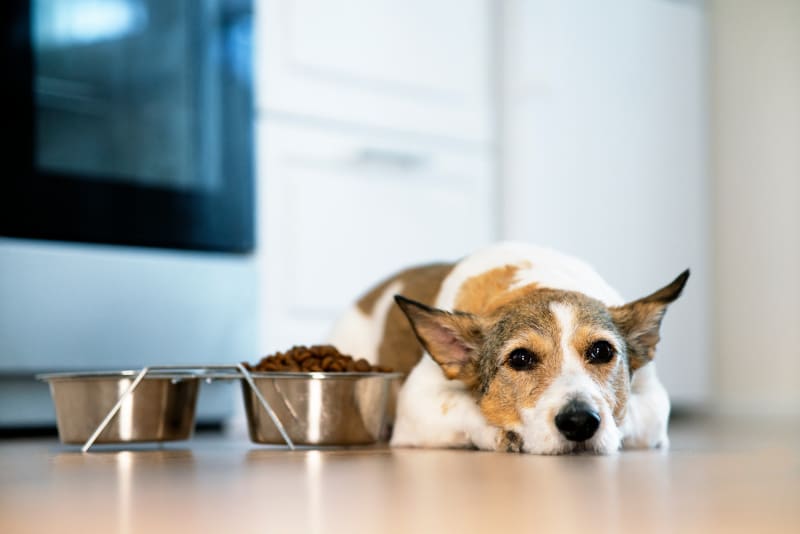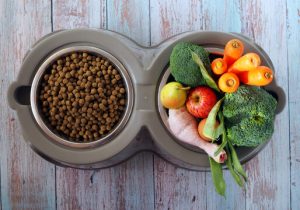As dogs age, their nutritional needs change significantly. Senior dogs have immense nutritional demands; require a diet that supports joint health, maintains muscle mass, boosts immune function, and prevents weight gain. Selecting the best dog food for senior dogs can seem overwhelming, but with the right guidance, you can ensure your aging companion gets the nutrients they need to stay healthy and active. This comprehensive guide will explore essential factors to consider when choosing the best dog food for senior dogs and tips on how to make the transition easier.
Understanding the Nutritional Needs of Senior Dogs
As your dog enters their golden years, their metabolism slows down, making them more prone to weight gain. Additionally, senior dogs often experience joint issues, decreased muscle mass, and weaker immune systems. To address these concerns, the best dog food for senior dogs should be tailored to their specific nutritional needs. Here are the key components you should look for:
- Protein Content
Senior dogs need high-quality protein to maintain muscle mass. Opt for a diet with lean, easily digestible protein sources like chicken, turkey, or fish. The best dog food for senior dogs should contain adequate protein to help them maintain muscle strength without overloading their system. - Joint Support
Older dogs often suffer from arthritis and joint pain. The best dog food for senior dogs includes supplements like glucosamine and chondroitin to support joint health and mobility. These ingredients help alleviate pain and promote flexibility, making them crucial for senior dogs. - Fiber and Digestive Health
Aging dogs can struggle with constipation or digestive issues. The best dog food for senior dogs will be rich in fiber to promote healthy digestion. Look for ingredients like sweet potatoes, brown rice, or pumpkin, which provide a good source of dietary fiber. - Healthy Fats and Omega-3 Fatty Acids
Senior dogs benefit from omega-3 fatty acids, which help support cognitive function, improve coat condition, and reduce inflammation. The best dog food for senior dogs should contain fish oil or flaxseed as sources of omega-3s to keep their brain sharp and skin healthy. - Low Calories
Since senior dogs are less active, they require fewer calories to maintain a healthy weight. Choosing the best dog food for senior dogs means selecting a formula that is low in calories but still nutrient-dense. This will help prevent weight gain while ensuring they get the necessary vitamins and minerals.
Types of Dog Food for Senior Dogs
When it comes to selecting the best dog food for senior dogs, you have several options, including dry kibble, wet food, and raw or homemade diets. Each type has its benefits, and the right choice depends on your dog’s preferences and specific health needs.
1. Dry Kibble
Dry kibble is one of the most common choices for senior dogs due to its convenience and shelf stability. The best dog food for senior dogs in kibble form should have smaller, softer pieces for easier chewing, especially for dogs with dental issues. Some senior kibbles are fortified with joint-supporting supplements, making them an excellent choice for arthritic dogs.
2. Wet Food
Wet food can be a better option for older dogs with dental problems or picky eaters. It is easier to chew and often more palatable. The best dog food for senior dogs in wet form will be nutrient-rich without excessive fat or sodium content. Wet food also provides additional hydration, which can be beneficial for senior dogs with kidney issues.
3. Raw or Homemade Diets
Some owners prefer preparing homemade meals or opting for raw diets for their senior dogs. While this can be a great way to ensure high-quality ingredients, it’s essential to consult with a veterinarian to ensure the meals are balanced. The best dog food for senior dogs that is homemade should include lean proteins, healthy fats, and a variety of vegetables to cover all nutritional bases.
Key Ingredients to Look for in the Best Dog Food for Senior Dogs
The right dog food will include specific ingredients that target the needs of older dogs. Here’s what to prioritize when selecting the best dog food for senior dogs:
- Lean Proteins: Chicken, turkey, or fish are ideal protein sources for senior dogs. They provide essential amino acids without overloading the dog with unnecessary fats.
- Whole Grains and Fiber-Rich Foods: Brown rice, oatmeal, and sweet potatoes provide complex carbohydrates and fiber to aid digestion.
- Antioxidants: Vitamins E and C are critical antioxidants that support immune function and cognitive health. The best dog food for senior dogs should have these vitamins in sufficient quantities.
- Joint Health Supplements: Glucosamine and chondroitin should be present to protect against arthritis and other joint issues.
- Omega-3 Fatty Acids: Ingredients like fish oil or flaxseed provide these essential fats, which support cognitive function and reduce inflammation.
Avoiding Harmful Ingredients in Senior Dog Food
Choosing the best dog food for senior dogs also means knowing which ingredients to avoid. Fillers, artificial preservatives, and excessive sodium or sugar can lead to health complications in older dogs. Here’s a list of things to steer clear of:
- Fillers: Ingredients like corn, soy, or wheat are low-quality fillers that add little nutritional value.
- Artificial Preservatives: Chemicals like BHA, BHT, and ethoxyquin can be harmful to your dog’s long-term health.
- Excessive Fat: While some healthy fats are beneficial, too much can lead to obesity and other related health issues.
- Added Sugars: Dogs do not need sugar in their diets, and it can lead to weight gain or diabetes.
How to Transition to the Best Dog Food for Senior Dogs
Switching to the best dog food for senior dogs should be done gradually to prevent digestive upset. Start by mixing the new food with the old food, increasing the ratio of new food over a week. Monitor your dog closely during the transition to ensure they are adjusting well.
- Day 1-2: 75% old food, 25% new food
- Day 3-4: 50% old food, 50% new food
- Day 5-6: 25% old food, 75% new food
- Day 7: 100% new food
This gradual transition helps prevent stomach upset and gives your dog’s digestive system time to adjust to the new diet.
Conclusion
Choosing the best dog food for senior dogs is essential for ensuring their health and well-being in their later years. From prioritizing lean proteins and joint supplements to avoiding harmful fillers and excessive fats, selecting the right diet can help your senior dog maintain a healthy weight, strong muscles, and a vibrant coat. Whether you opt for dry kibble, wet food, or homemade meals, understanding the unique needs of older dogs will help you make informed decisions that enhance their quality of life.
By providing your dog with the best dog food for senior dogs, you’re not only supporting their health but also giving them the best chance at living a longer, happier life.
For more ideas on quality homemade cat and dog food, please visit our complete food collection for cats and dogs here



